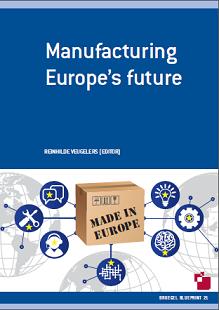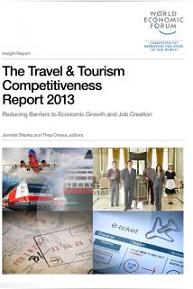Karamouzi, E., (2013), “The Greek paradox”. In LSE, The Crisis of EU Enlargement, London: LSE !deas. In recent years, Greece’s place in the EU has been ferociously debated as Athens’ financial and economic woes continue to trouble the stability of the euro and rattle the Eurozone markets. Contemporary press and European political elites alike engage in a seemingly endless blame game over the political origins of the Greek financial crisis. …Read More
Fostering a European identity is unlikely to be a successful method for increasing citizens’ trust in the EU
Harteveld, E., (2013), “Fostering a European identity is unlikely to be a successful method for increasing citizens’ trust in the EU”, LSE European Politics and Policy Blog, 27 Νοεμβρίου. The financial crisis has rekindled debates about the legitimacy of the European Union and, in particular, whether citizens trust the EU. Using Eurobarometer data, Eelco Harteveld analyses three possible sources for trust in the EU: rational evaluation, identity and projection. He …Read More
Brain drain, a new challenge for the Eurozone
Katsikas, D., (2013), “Brain drain, a new challenge for the Eurozone”, EurActiv, Opinion Article, 25 Νοεμβρίου. Only a genuine growth agenda can nurture labour mobility, a pre-requisite for the efficient operation of the eurozone and ultimately, for the vision of a conflict-free Europe. Without such agenda mobility could become one of the principal factors of the eurozone’s disintegration, writes Dimitris Katsikas. “As the crisis persists, news of increasing movement of …Read More
Manufacturing Europe’s Future
Veugelers, R. (ed.), (2013), Manufacturing Europe’s Future, Brussels: Bruegel. ‘Industrial policy is back!’ This is the message given in the European Commission’s October 2012 communication on industrial policy (COM(2012) 582 final), which seeks to reverse the declining role of the manufacturing industry, and increase its share of European Union GDP from about 16 percent currently to above 20 percent. Historical evidence suggests that the goal is unlikely to be achieved. …Read More
Currency wars and the euro
Nordvig, J., (2013), “Currency wars and the euro”, VoxEU, 25 Νοεμβρίου. Having promised to do ‘whatever it takes’ to ensure the survival of the euro, the ECB now faces the problem of record high unemployment combined with a strong currency. There is accumulating evidence that the ECB is more willing to fight currency appreciation than the Bundesbank would have been. Capital inflows have been a key source of recent upward …Read More
Debt Reduction, Fiscal Adjustment, and Growth in Credit-Constrained Economies
Baldacci, Ε., Gupta, S. and Mulas-Granados, C., (2013), “Debt Reduction, Fiscal Adjustment, and Growth in Credit-Constrained Economies”, International Monetary Fund, Working Paper No.13/238, 22 Νοεμβρίου. This paper assesses the effects of fiscal consolidations associated with public debt reduction on medium-term output growth during periods of private debt deleveraging. The analysis covers 107 countries and 79 episodes of public debt reduction driven by discretionary fiscal adjustments during 1980–2012. It shows that …Read More
The Travel & Tourism Competitiveness Report 2013
WEF, (2013), The Travel & Tourism Competitiveness Report 2013: Reducing Barriers to Economic Growth and Job Creation, Geneva: World Economic Forum. Under the theme “Reducing Barriers to Economic Growth and Job Creation”, The Travel & Tourism Competitiveness Report 2013 assesses 140 economies worldwide based on the extent to which they are putting in place the factors and policies to make it attractive to develop the travel and tourism sector. Read …Read More
Spain: Financial Sector Reform
IMF, (2013), “Spain: Financial Sector Reform—Fourth Progress Report”, International Monetary Fund, Country Report No. 13/331, 22 Νοεμβρίου. Implementation of Spain’s financial sector program remains on track. Essentially all measures specified in the program have now been implemented, as envisaged under its front-loaded timetable. Of note, capital-augmentation measures arising from last year’s stress test are now complete, SAREB has almost concluded its organizational development and is now accelerating the liquidation of …Read More
Global and Eurozone imbalances: A question of civic capital?
Bützer, S., Jordan, C. and Stracca, L., (2013), “Global and Eurozone imbalances: A question of civic capital?”, VoxEU, 23 Νοεμβρίου. Since the advent of the Eurozone sovereign-debt crisis, economic commentators have drawn attention to macroeconomic imbalances within the Eurozone. This column presents evidence on the link between macroeconomic imbalances and differences in culture – or more specifically, interpersonal trust. A conservative estimatation suggests that a one standard-deviation increase in trust …Read More
Addressing competitiveness or financial fragmentation? – a false dilemma
O’Neil , J. and Terzi, A., (2013), “Addressing competitiveness or financial fragmentation? – a false dilemma”, Bruegel, 22 Νοεμβρίου. In explaining competitiveness developments in the EU, use is being made of the World Economic Forum Global Competitiveness Indicator. However, in its aggregated form, this index risks conveying deceptive policy recommendations. The sharp fall in competitiveness observed in programme countries throughout the crisis is to be attributed largely to financial stress …Read More






